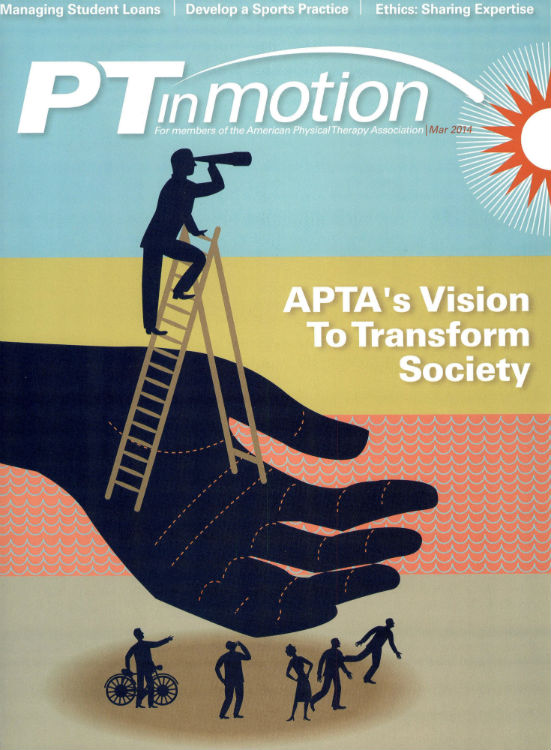
By early in the second decade of the 21st century, the feeling within APTA was that the goals of Vision 2020 — the association’s existing vision statement that had been adopted 13 years earlier—had largely been met or were moving crisply in that direction. The statement primarily focused inward, aspiring to health care that would be “provided by physical therapists who are doctors of physical therapy, recognized by consumers and other health care professionals as practitioners of choice to whom consumers have direct access” for a variety of movement-related needs. The House of Delegates therefore began developing a new vision that would encapsulate the impact physical therapy could and must have on individuals, communities, and populations.
The resulting Vision Statement for the Physical Therapy Profession adopted by the House in 2013 packed a great deal of ambition and power into just 10 words:
Transforming society by optimizing movement to improve the human experience.
The accompanying Guiding Principles to Achieve the Vision observed that “the complex needs of society, such as those resulting from a sedentary lifestyle, beckon for the physical therapy profession to engage with consumers to reduce preventable health care costs and overcome barriers to participation in society.” The principles document further emphasized that the new vision was “meant to inspire others throughout society to, together, create systems that optimize movement and function for all people.”
These principles guided the following specific concepts: identity (identifying the movement system as the vision’s foundation); quality (establishing best practices in the clinic, education, and research); collaboration with other health care providers and consumers; value (in terms of cost and equitability); innovation in forging solutions; consumer-centricity (with cultural competence as a key); access (with special attention to the influence of social determinants of health); and advocacy for patients, clients, and consumers “both as individuals and as a population.”
In her 2018 address to the House, APTA President Sharon Dunn would speak to the significance of the outward-facing vision the body had adopted five years earlier.
“When our bicentennial arrives in 2121” she said, astute historians will note that in 2013 the House of Delegates foreshadowed a fast-approaching new era for our profession — and hastened its arrival.” At that “truly transformative moment,” she stated, the profession and APTA “were nudged out of our familial nest and made to spread our wings.”